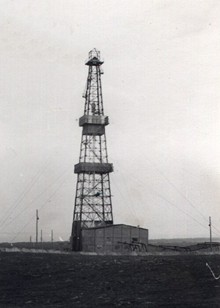The Environmental History of the Baltic Sea: Ecologies and Discourses of Crude Oil Extraction and Processing
by Jan-Hinnerk Antons

The Baltic Sea is not exactly known for being a rich source of oil, even though the largest ever discovery of oil deposits under the seabed in Poland's Exclusive Economic Zone was publicised in 2025. However, there has been continuous exploratory drilling around the Baltic Sea since the 1950s, with smaller quantities of oil being successfully commercially funded through both offshore and onshore drilling on islands and in coastal areas. In the absence of overwhelming economic pressure to exploit these smaller oil fields, the social disputes surrounding the pros and cons of support can be analysed particularly well here. This is because a number of projects were at least temporarily recruited due to civil society interventions. This focus opens up a field of tension between the transnational organisational form of the oil companies and the ecological consequences that cannot be limited to states on the one hand, and the civil societies and governments that were initially still active at national level on the other, which were given an impetus to cooperate across boundaries.
In addition to exploration and support, interest also focussed on processing and transport, as debates were often sparked by oil tanker accidents or the ecological problems associated with the normal operation of refineries. For the ecosystem of the very shallow Baltic Sea, which has little water exchange with the world's oceans, even comparatively small amounts of pollution are particularly threatening. The practices of resource utilisation are therefore being investigated firstly with regard to their perception by key transnational stakeholders - such as the fishing industry, tourism or civil society or institutional environmentalists - and secondly with regard to their concrete ecological consequences.
